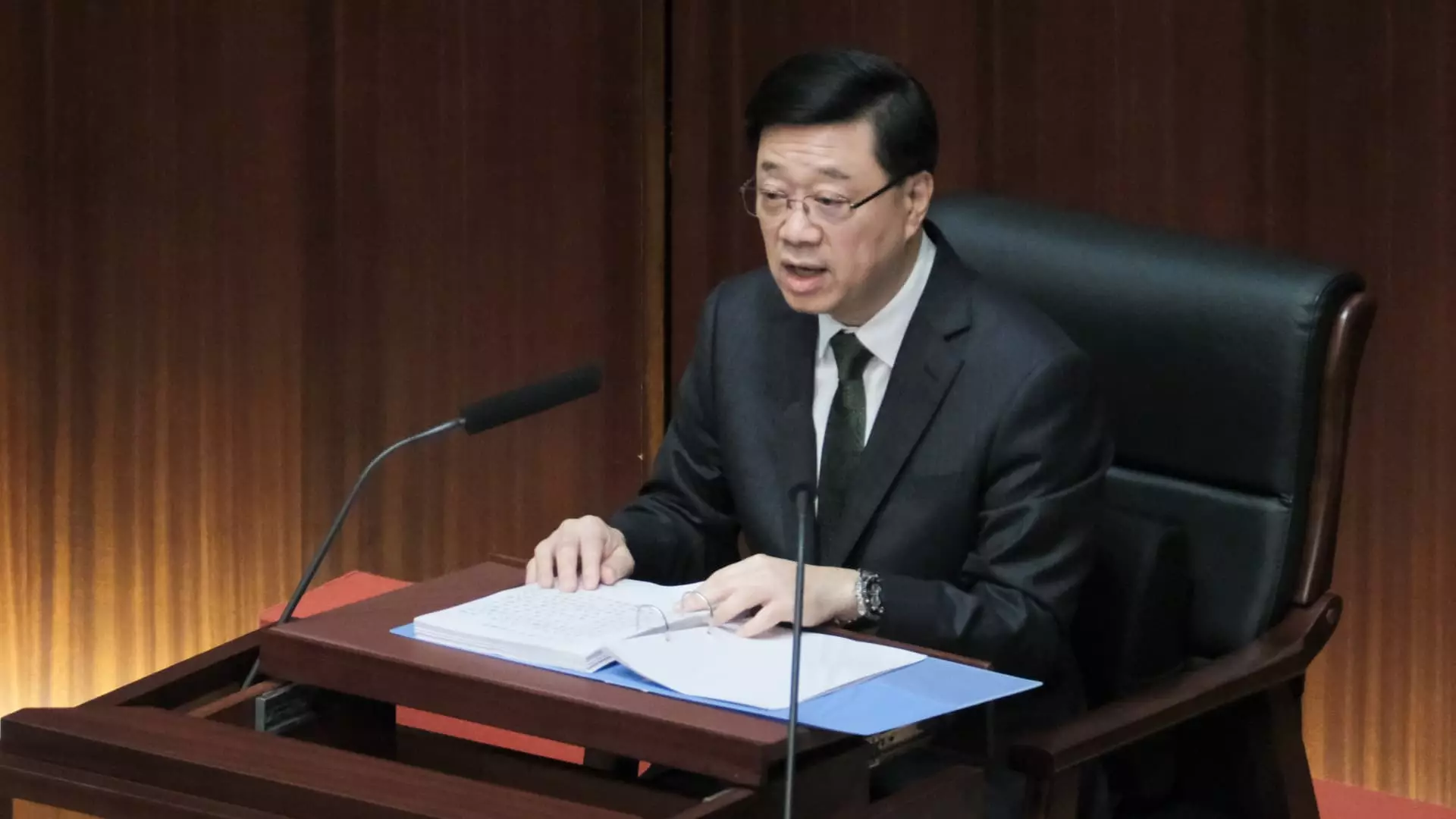Confronting the Housing Affordability Crisis in Hong Kong

The housing crisis in Hong Kong has reached alarming levels, with significant implications for the younger generation and socioeconomic dynamics within the city. In a recent annual policy address, Chief Executive John Lee acknowledged, “an issue of great public concern,” emphasizing the need for immediate action to ensure that housing remains accessible to citizens, particularly those under 40 years of age. The high demand for affordable housing has created a contentious backdrop against a backdrop of sky-high real estate prices, prompting the government to unveil a series of initiatives aimed at cartering to the housing needs of younger residents.
Youth-Centric Initiatives
One of the premier policies highlighted by Lee is a modification of the Home Ownership Scheme that specifically targets applicants under 40. By allocating an additional ballot number to this demographic, the government aims to enhance their chances of securing subsidized housing. This initiative responds directly to the growing fear among young Hong Kongers that they must relinquish career advancements or salary increments merely to maintain their eligibility for public housing. Such career stagnation is alarming not only for the youth but also for the overall economic viability of the city.
Another facet of Lee’s proposal involves increasing the quota for the “White Form Secondary Market Scheme” by 1,500 units, which will also prioritize those below 40. The practicality of these moves cannot be overstated; however, whether they will significantly alleviate the pressure young residents feel remains an open question.
Despite governmental efforts, statistics paint a stark picture of the current housing landscape. The 2024 Demographia International Housing Affordability report placed Hong Kong at the bottom of the global list for housing affordability, a disheartening validation of urban challenges. The city’s disturbing prevalence of subdivided flats, characterized by “shoe-box” conditions and associated health issues, further exemplifies the housing crisis. A thoughtful and proactive approach to addressing these substandard living conditions must be integrated into the overall housing policy framework.
In response, Lee announced a new regulatory framework to oversee the renting of subdivided flats. The government’s transformation of these “substandard” units into “Basic Housing Units” demonstrates an acknowledgment that not all living spaces in Hong Kong meet acceptable safety and livability standards. By enforcing criteria such as minimum size and adequate facilities, the initiative aims to enhance living conditions for vulnerable populations.
The government’s commitment to constructing approximately 9,500 new public housing units by the end of next year signals a concerted effort towards increasing the housing stock. The ambitious goal of completing around 30,000 new public housing units by 2027-2028 illustrates the government’s long-term vision. However, with current waiting times extending up to 5.5 years for public housing, the effectiveness of this strategy will hinge on the government’s ability to expedite construction and streamline processes.
Lee insinuated that this wait time could improve to 4.5 years by the fiscal year 2026-2027, but skepticism remains prevalent among those affected by the housing crisis. Building public trust will be vital as the administration navigates mounting pressure to fulfill its housing promises.
As this year’s policy address marked Lee’s third during his tenure, it appears to signify a strategic pivot focusing more on the residents’ livelihoods and economic recuperation, rather than primarily on national security or pandemic recovery. This shift signifies an attempt to recalibrate public discourse and address pressing urban challenges, although the efficacy of these initiatives will ultimately determine their legacy.
While Chief Executive John Lee’s recent proposals offer optimism amid an overwhelming crisis, the path to actualizing these initiatives will demand meticulous planning, community engagement, and governmental accountability. A holistic approach that balances immediate relief with long-term housing strategies is essential for fostering a sustainable future for all Hong Kongers, especially the youth who bear the brunt of this ongoing crisis.





